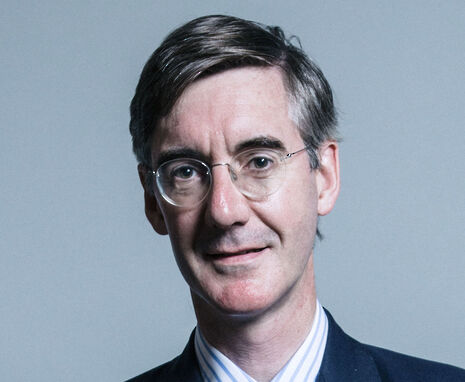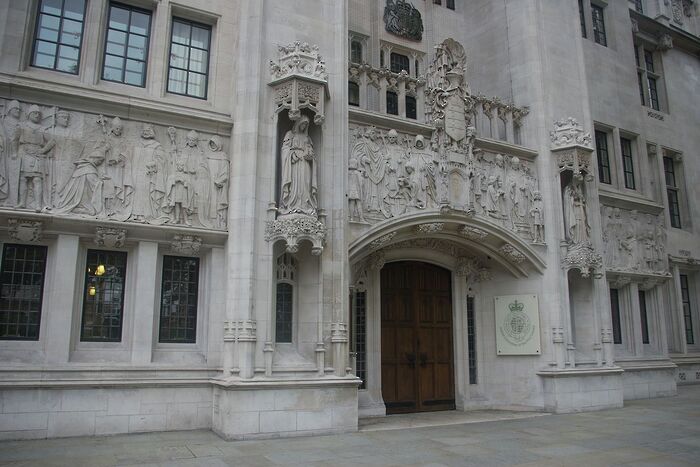Party conference shows the Tories need to offer something bold and enticing for young voters
Rob Machado argues that the Tories have not done enough to win over the young electorate, and should start doing more if they want to remain in power

“I was young once. I wasn’t very good at it.” So said Jacob Rees-Mogg MP at a fringe event of last week’s Tory conference about winning back young voters, in effect summing up the Tory dilemma.
The Conservative Party has a problem with the young. Analysis by YouGov following this year’s general election showed that youth turnout was at its highest for 25 years and that the vast majority of those under 30 were voting Labour. The age at which you were more likely to vote Tory than Labour hit 47, up from 34 in 2015.
“The party has convinced itself that the problem is that we, the young, just don’t understand how great free-market Toryism is”
Given all this, one would have thought that the party might be rushing at its conference to win back the hearts and minds of generations Y and Z. Not a bit of it. The party has convinced itself that the problem is that we, the young, just don’t understand how great free-market Toryism is. Philip Hammond urged us to heed the warnings of the 1970s. Boris Johnson huffed a victory ode to the great Conservative landslides of the 1980s. If only we knew how brilliant it all is, surely we’d all be voting for the blues?
Nonsense. Young people are not voting Conservative because the Conservatives have offered the younger generation very little. This shouldn’t come as a surprise; this was the Tory plan. David Cameron chose to focus policy on the elderly electorate over the young in 2010 and 2015: pensioners enjoyed protected and guaranteed rises in income, free TV licences and bus passes for the elderly, and a continually inflated housing market for overwhelmingly grey-haired home-owners. Contrast that with the treatment of the young: Educational Maintenance Allowance cut, tuition fees trebled and the hardest Brexit possible embraced.
The most significant thing Theresa May has yet done for the young in her short and tenuous leadership was turning her speech last Wednesday into an internet sensation. Oh, and she entered the stage to Rihanna.
It is striking that a party founded on individualism seems so shocked that the youngest voters have now arrived to reclaim some political leverage after years of being ignored. The gamble that they wouldn’t turn out to vote may have worked before, but the last election showed it might not work again.
The Tory response so far has certainly been to treat young voters more like adults than Corbyn: nobody doubts their ability to deliver what was pledged at conference on raising the threshold at which fees are paid back to £25,000 or that Help to Buy will continue with new money to help young people onto the housing market. But despite this, they have failed to address the unfairness their policies have created and which are so resented by many young voters. Yes, a few more homes and some minor reforms to tuition fees are a good start, but where is the recognition that other policies need radical reform?
It’s time for the Conservatives to recognise the new political weather and offer something bold and genuinely enticing to young voters. They cannot outbid the fairy tale of Corbynomics, and nor should they. But they can maintain credibility while not ignoring the concerns of the youngest voters. If £1bn can be found for the DUP, let it be found to build more affordable housing. If pensions can be triple-locked, let maintenance grants for poorer students be restored. If money can be found for adult social care, let it be found for youth mental health services. Why can the government not find some compromise on Brexit to address the 75% of 18-24 year olds who voted to remain in the EU?
It may be that the best the Tories can hope for is to placate enough young people that more stay home at the next election, but either way, it’s time the Conservatives gave the young something to vote for, rather than condemning us to the choice between punishment and fantasy
 Features / Should I stay or should I go? Cambridge students and alumni reflect on how their memories stay with them15 December 2025
Features / Should I stay or should I go? Cambridge students and alumni reflect on how their memories stay with them15 December 2025 News / Cambridge study finds students learn better with notes than AI13 December 2025
News / Cambridge study finds students learn better with notes than AI13 December 2025 News / Dons warn PM about Vet School closure16 December 2025
News / Dons warn PM about Vet School closure16 December 2025 News / News In Brief: Michaelmas marriages, monogamous mammals, and messaging manipulation15 December 2025
News / News In Brief: Michaelmas marriages, monogamous mammals, and messaging manipulation15 December 2025 Comment / The magic of an eight-week term15 December 2025
Comment / The magic of an eight-week term15 December 2025









